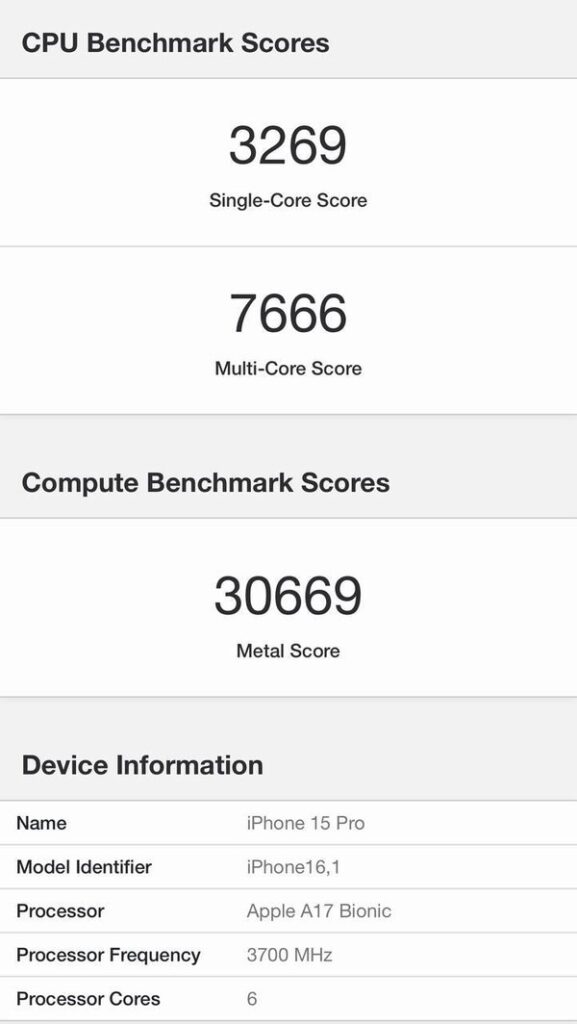
A recent alleged Geekbench test has brought some intriguing revelations about Apple’s latest A17 Bionic chipset. This chipset is significant because it’s the first smartphone application processor (AP) manufactured using a cutting-edge 3nm process node. The test, shared by tipster @NaveenTechWala on X and reported by NotebookCheck, pitted the A17 Bionic against the unannounced 4nm Snapdragon 8 Gen 3 for Galaxy in terms of performance.
During the benchmark test, it’s said that the A17 Bionic was used to power an iPhone 15 Pro, achieving an impressive single-core score of 3269 and an even more remarkable multi-core score of 7666. This outperformed the 4nm Snapdragon 8 Gen 3 for Galaxy, which managed scores of 2223 and 6661 for single-core and multi-core respectively. The Snapdragon 8 Gen 3 was said to be inside a Galaxy S24+ during its test.
Comparing the A17 Bionic to its predecessor, the A16 Bionic, the new chip exhibited a 47% improvement in single-core and a 15.1% boost in multi-core performance. The A17 Bionic is slated to power the iPhone 15 Pro and iPhone 15 Pro Max models, while the iPhone 15 and iPhone 15 Plus will feature the 4nm A16 Bionic.

The A17 Bionic’s maximum clock speed was reported to be 3.7GHz, aligning with earlier leaks about its specifications. Additionally, the A17 Bionic achieved a Compute Benchmark Score of 30669, surpassing the 23000 score of the iPhone 14 Pro running the A16 Bionic. This score indicates improved GPU performance for tasks like image processing, computer vision, and machine learning, which can be attributed to the advantages of the new 3nm process node.
While these findings are intriguing, it’s worth noting that @NaveenTechWala is not widely known, and the lack of an official Geekbench result should be taken into account when considering these results.




